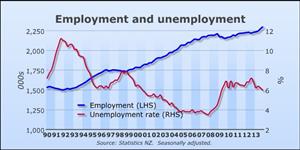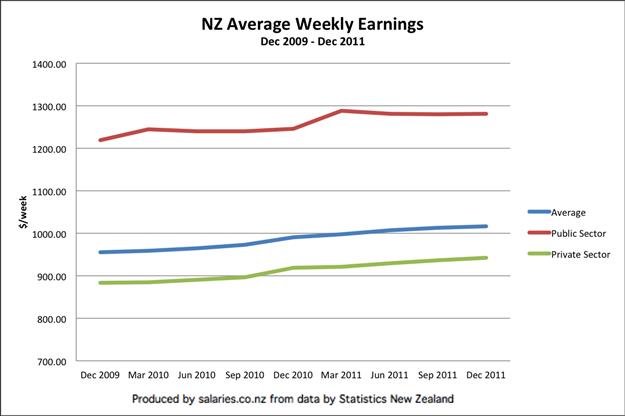At one point in my early school years, my Science teacher totally upended my views on nature.
Up to that point, I had been taught that nature existed along a food chain: the Sun and the rain nurtured the plants, animals like rabbits ate the plants, bigger animals like foxes ate the rabbits, and when the foxes died, their bodies were decomposed by worms and bugs or scavengers like hawks.
It was simple, straight-forward and made sense, until I found out that nature was not a chain at all.
It was a web, in which lots of factors and actors interacted in numerous and sometimes mysterious ways upon one another.
Discernable change
If you make a change in any one element any one point of the web, you can see effects in places you did not even realise were related to that one element, that one point.
The Government recently announced that it will be raising the minimum wage by 50 cents to $14.25 per hour.
Critics on the right have accused the Government of being too generous, saying that raising the minimum wage will have a flow-on effect, costing jobs in the wider economy and raise inflation.
Critics on the left say that the raise is not high enough; it is not giving low-wage workers the money they need to support their families.
Either critique would be fine if the economy and society were chains.
But they are not; they are webs.
Nobody really knows what will happen in the wider economy once the minimum wage is raised.
 Two extremes
Two extremes
A recent report of the Congressional Budget Office (basically the US equivalent of Treasury) estimated that raising the minimum wage in the US from $7.25 an hour to $10.10 could result in the loss of anywhere from zero to one million jobs.
It is also unclear as to what would happen to inflation in the economy.
Therefore, it could have no impact, or it could be devastating.
Additionally, it is hard to say that raising the minimum wage will actually help low-income families.
Treasury reports that nearly 80% of those earning minimum wage are not a part of low-income families.
Many of them are young people living at home, single people, or one half of a couple in which their partner makes a higher wage.
 The problem is that a higher minimum wage does not just go towards helping, say, a single father who works full time in a factory to support his children, it also applies to a high school student working part time as a barista, and living comfortably with her parents.
The problem is that a higher minimum wage does not just go towards helping, say, a single father who works full time in a factory to support his children, it also applies to a high school student working part time as a barista, and living comfortably with her parents.
The rise would cost all employers the same for each employee, but it is not equally necessarily so for all workers.
In addition, not all low-income families even rely on a member making minimum wage.
Not simple
Raising the minimum wage is not a simple thing, and it does not have simple and straightforward consequences; it does not destroy the economy or accrue additional saving for low-income families.
Therefore, let us not be drawn in by chain thinking.
Nature, after all, is a web.






